-
English Thyme Plants for Sale
English thyme (Thymus vulgaris) is a versatile and aromatic perennial herb prized by gardeners and chefs. This delightful plant can be grown indoors and requires only basic care to thrive. Its low-maintenance qualities, attractive appearance, and culinary uses make it a must for any garden.
English thyme is one of the herbs we proudly offer at The Growers Exchange. Read on to learn more about this commonly used culinary herb.
The English Thyme Plant: Appearance and Characteristics
English Thyme is a small, low-growing shrub that typically reaches a height of 6 to 12 inches, with some varieties growing up to 18 inches tall. It spreads to a width of about 12 to 18 inches.
English thyme's woody stems are lined with tiny, oval-shaped leaves, which are a lush green in the spring and summer. While some varieties might show a slight color shift toward a deeper shade in colder months, English Thyme is generally considered evergreen, maintaining its green color year-round, especially in warmer climates. During the summer, it produces delicate flowers in shades of pale purple, pink, or even white, adding a splash of color and attracting pollinators like bees and butterflies to your garden.
English Thyme: Origins and History
Native to the Mediterranean region, thyme has been cherished for its culinary, medicinal, and aromatic properties for millennia. Ancient Egyptians used thyme in their embalming process, while the Greeks burned it as incense in temples, believing it to be a source of courage. Romans also valued thyme, using it to purify their homes and adding it to their baths for its refreshing scent.
In medieval Europe, thyme symbolized bravery, often given to knights before battle. It was also a key ingredient in many traditional medicines, believed to ward off disease and promote longevity. The herb's resilience and versatility helped it spread across the continent. Due to the Roman expansion, it eventually made its way to England, where it became a beloved garden staple.
English Thyme Plant Care: Growing Tips
Whether you're a novice gardener or a seasoned horticulturist, growing English Thyme is a rewarding experience. This hardy perennial is known for its ease of care and ability to thrive in various conditions. Here are some tips to help you cultivate this versatile herb:
-
Soil: English thyme thrives in well-drained soil with a neutral to slightly alkaline pH. To ensure optimal drainage, consider adding sand or gravel to your garden bed or potting mix.
-
Light: English thyme loves full sun and requires at least six to eight hours of sunlight daily. If you're growing thyme indoors, place it near a south-facing window or under grow lights.
-
Watering: Once established, English thyme is drought-tolerant. Water the plants deeply but infrequently, allowing the soil to dry out between waterings. Avoid overwatering, as this could lead to root rot.
-
Pruning: Regular pruning helps keep your English thyme plants healthy and encourages bushy growth. Trim the stems back after the last frost in spring and again after flowering to maintain a compact shape.
-
Harvesting: Harvest thyme by snipping off the top five to six inches of the stems. It's best to harvest in the morning after the dew has dried.
-
Pest and Disease Management: English Thyme is generally resistant to pests and diseases, making it a low-maintenance addition to your garden. However, watch out for root rot in poorly drained soils and fungal diseases if the plants are too crowded. Aphids and spider mites can occasionally be an issue. You can treat them with a mild insecticidal soap or use a strong water spray to dislodge them.
English Thyme: Uses and Benefits
English thyme is a staple in many kitchens worldwide. Its robust, earthy flavor with hints of mint and lemon enhances various dishes. You can use fresh or dried English thyme leaves to season meats, poultry, and fish. It's also a fantastic addition to soups, stews, sauces, and marinades. English thyme pairs wonderfully with other Mediterranean herbs like rosemary, oregano, and basil. It is an essential component in herb blends like bouquet garni.
Historically, thyme has been used for its medicinal properties. It contains thymol, an essential oil with antiseptic, antifungal, and antibacterial properties. Thyme tea is a traditional remedy for respiratory issues, aiding in the relief of coughs, bronchitis, and congestion.
The pleasant aroma of English thyme makes it an excellent choice for potpourris and sachets, adding a refreshing scent to your home. Meanwhile, its lovely small flowers, compact growth habit, and attractive foliage also make it an ideal choice for edging, rock gardens, and container planting.
Add Healthy, High-quality English Thyme Plants to Your Garden
At The Growers Exchange, we offer high-quality, live English Thyme plants perfect for gardeners of all skill levels. Our plants are nurtured with care to ensure they arrive at your doorstep healthy and ready to thrive in your garden. Place your order today!
-
-
-
English Thyme Plants for Sale
English thyme (Thymus vulgaris) is a versatile and aromatic perennial herb prized by gardeners and chefs. This delightful plant can be grown indoors and requires only basic care to thrive. Its low-maintenance qualities, attractive appearance, and culinary uses make it a must for any garden.
English thyme is one of the herbs we proudly offer at The Growers Exchange. Read on to learn more about this commonly used culinary herb.
The English Thyme Plant: Appearance and Characteristics
English Thyme is a small, low-growing shrub that typically reaches a height of 6 to 12 inches, with some varieties growing up to 18 inches tall. It spreads to a width of about 12 to 18 inches.
English thyme's woody stems are lined with tiny, oval-shaped leaves, which are a lush green in the spring and summer. While some varieties might show a slight color shift toward a deeper shade in colder months, English Thyme is generally considered evergreen, maintaining its green color year-round, especially in warmer climates. During the summer, it produces delicate flowers in shades of pale purple, pink, or even white, adding a splash of color and attracting pollinators like bees and butterflies to your garden.
English Thyme: Origins and History
Native to the Mediterranean region, thyme has been cherished for its culinary, medicinal, and aromatic properties for millennia. Ancient Egyptians used thyme in their embalming process, while the Greeks burned it as incense in temples, believing it to be a source of courage. Romans also valued thyme, using it to purify their homes and adding it to their baths for its refreshing scent.
In medieval Europe, thyme symbolized bravery, often given to knights before battle. It was also a key ingredient in many traditional medicines, believed to ward off disease and promote longevity. The herb's resilience and versatility helped it spread across the continent. Due to the Roman expansion, it eventually made its way to England, where it became a beloved garden staple.
English Thyme Plant Care: Growing Tips
Whether you're a novice gardener or a seasoned horticulturist, growing English Thyme is a rewarding experience. This hardy perennial is known for its ease of care and ability to thrive in various conditions. Here are some tips to help you cultivate this versatile herb:
-
Soil: English thyme thrives in well-drained soil with a neutral to slightly alkaline pH. To ensure optimal drainage, consider adding sand or gravel to your garden bed or potting mix.
-
Light: English thyme loves full sun and requires at least six to eight hours of sunlight daily. If you're growing thyme indoors, place it near a south-facing window or under grow lights.
-
Watering: Once established, English thyme is drought-tolerant. Water the plants deeply but infrequently, allowing the soil to dry out between waterings. Avoid overwatering, as this could lead to root rot.
-
Pruning: Regular pruning helps keep your English thyme plants healthy and encourages bushy growth. Trim the stems back after the last frost in spring and again after flowering to maintain a compact shape.
-
Harvesting: Harvest thyme by snipping off the top five to six inches of the stems. It's best to harvest in the morning after the dew has dried.
-
Pest and Disease Management: English Thyme is generally resistant to pests and diseases, making it a low-maintenance addition to your garden. However, watch out for root rot in poorly drained soils and fungal diseases if the plants are too crowded. Aphids and spider mites can occasionally be an issue. You can treat them with a mild insecticidal soap or use a strong water spray to dislodge them.
English Thyme: Uses and Benefits
English thyme is a staple in many kitchens worldwide. Its robust, earthy flavor with hints of mint and lemon enhances various dishes. You can use fresh or dried English thyme leaves to season meats, poultry, and fish. It's also a fantastic addition to soups, stews, sauces, and marinades. English thyme pairs wonderfully with other Mediterranean herbs like rosemary, oregano, and basil. It is an essential component in herb blends like bouquet garni.
Historically, thyme has been used for its medicinal properties. It contains thymol, an essential oil with antiseptic, antifungal, and antibacterial properties. Thyme tea is a traditional remedy for respiratory issues, aiding in the relief of coughs, bronchitis, and congestion.
The pleasant aroma of English thyme makes it an excellent choice for potpourris and sachets, adding a refreshing scent to your home. Meanwhile, its lovely small flowers, compact growth habit, and attractive foliage also make it an ideal choice for edging, rock gardens, and container planting.
Add Healthy, High-quality English Thyme Plants to Your Garden
At The Growers Exchange, we offer high-quality, live English Thyme plants perfect for gardeners of all skill levels. Our plants are nurtured with care to ensure they arrive at your doorstep healthy and ready to thrive in your garden. Place your order today!

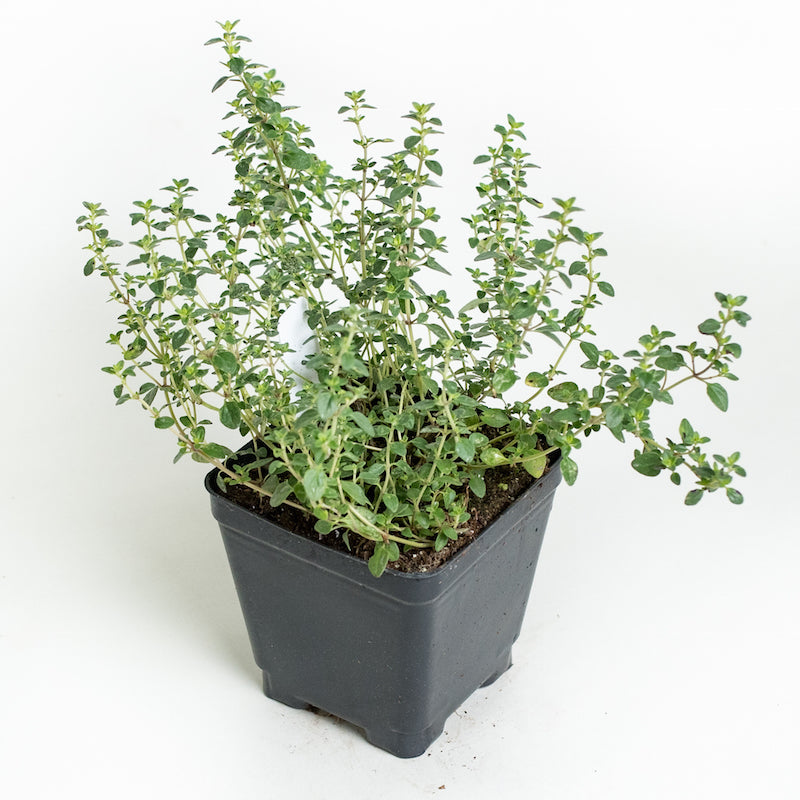
What’s included
Included items will appear here once configured.
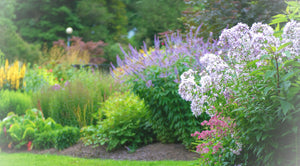
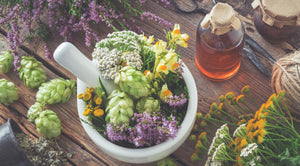
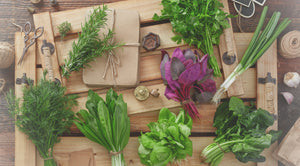
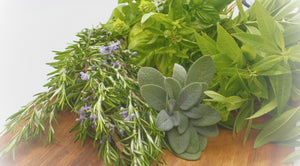
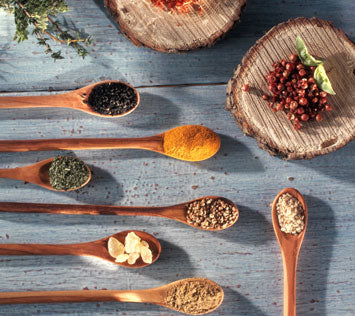


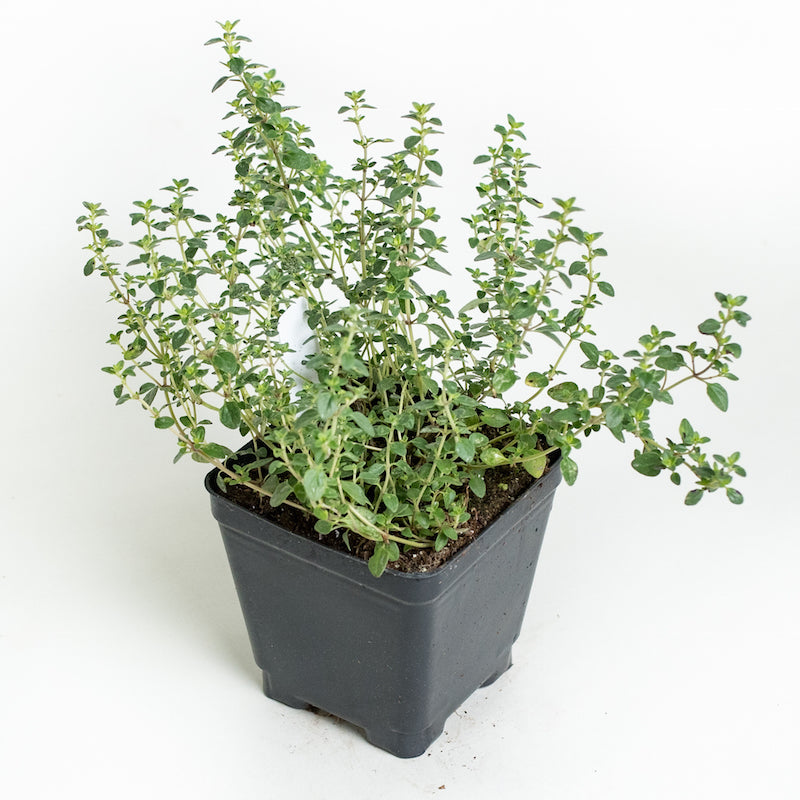



 Culinary
Culinary
 Medicinal
Medicinal
 Deer Resistant
Deer Resistant
 Aroma
Aroma
 Container
Container
 Pollinator
Pollinator
 Indoor
Indoor
 Cut
Cut
 Butterfly
Butterfly
 Drought
Drought